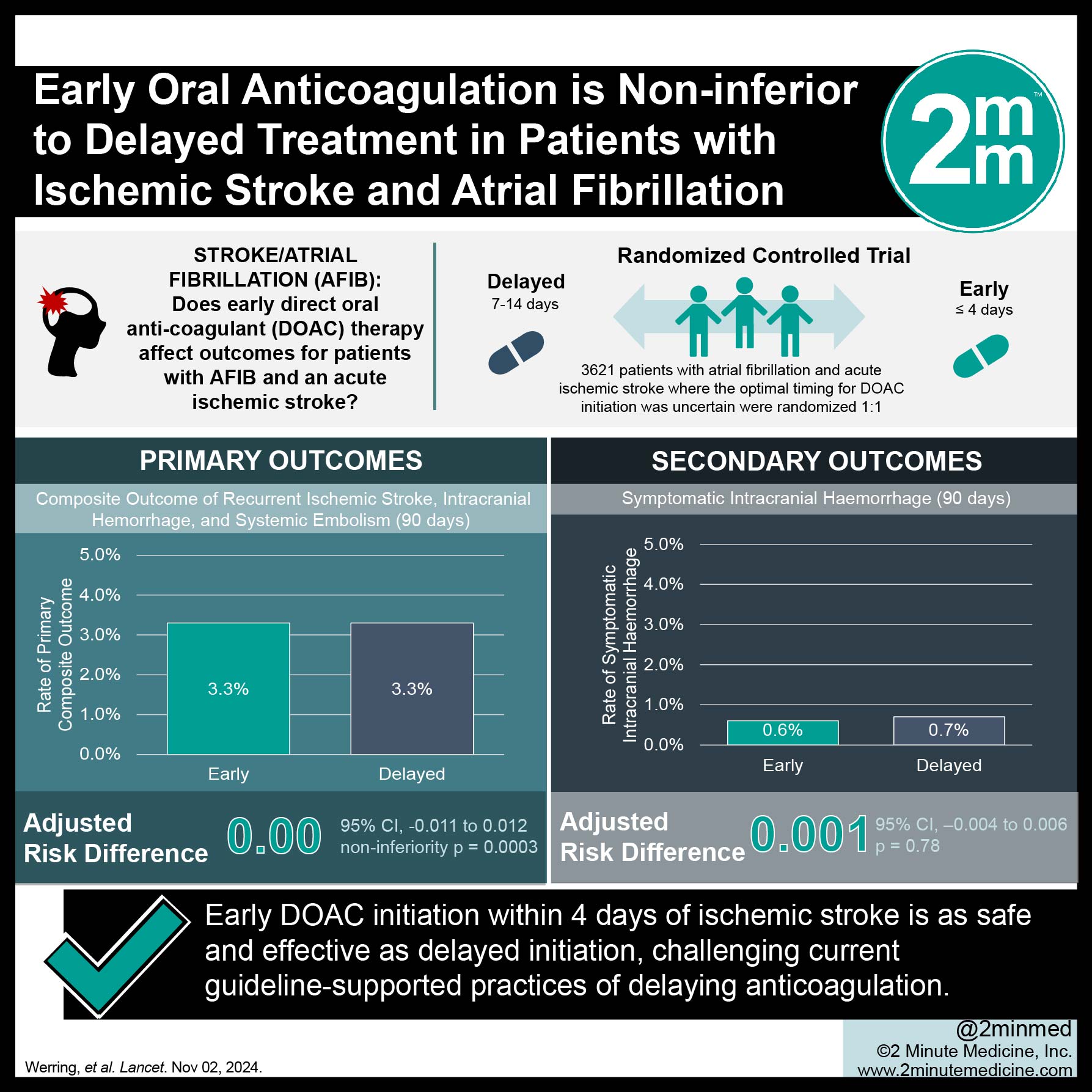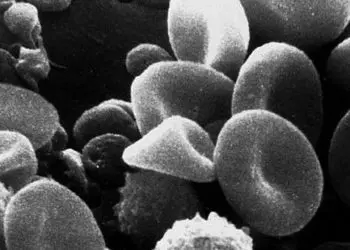#VisualAbstract Early Oral Anticoagulation is Non-inferior to Delayed Treatment in Patients with Ischemic Stroke and Atrial Fibrillation
 1. Early DOAC therapy within 4 days was non-inferior to delayed therapy for the composite outcome of recurrent ischemic or unclassified stroke, symptomatic intracranial hemorrhage, and systemic embolism at 90 days.
1. Early DOAC therapy within 4 days was non-inferior to delayed therapy for the composite outcome of recurrent ischemic or unclassified stroke, symptomatic intracranial hemorrhage, and systemic embolism at 90 days.
Evidence Rating Level: 1 (Excellent)
Study Rundown: The optimal timing for starting anticoagulation in patients with acute ischemic stroke and atrial fibrillation remains unclear, as existing guidelines often recommend delaying treatment to minimize bleeding risk. This randomized controlled trial aimed to compare the safety and efficacy of early versus delayed direct oral anticoagulant (DOAC) initiation in such patients. The primary outcome of this study was a composite of ischemic stroke, intracranial hemorrhage, or systemic embolism at 90 days, while a key secondary outcome was symptomatic intracranial hemorrhage. According to study results, early DOAC initiation was non-inferior to delayed initiation, with no significant difference with regard to recurrent ischemic strokes or symptomatic intracranial hemorrhage. A major strength of this study was its randomized design with individuals from all over UK.
Click to read the study in The Lancet
Relevant Reading: Early versus Later Anticoagulation for Stroke with Atrial Fibrillation
In-depth [randomized controlled trial]: Between Jul 5, 2019, and Jan 31, 2024, 3648 patients were assessed for eligibility at 100 UK hospitals. Included were patients with atrial fibrillation and acute ischemic stroke where the optimal timing for DOAC initiation was uncertain. Altogether, 3621 patients (1814 in the early group [≤4 days] and 1807 in the delayed group [7-14 days]) were included in the final analysis. The composite of recurrent ischemic stroke, intracranial hemorrhage, and systemic embolism was similar in both groups (3.3% each for early vs. delayed initiation, adjusted risk difference [RD] 0.000, p=0.0003 for non-inferiority). The secondary outcome of symptomatic intracranial hemorrhage also showed no significant difference between early and delayed initiation groups (0.6% vs. 0.7%, adjusted RD 0.001, p=0.78). Findings from this study suggest that early DOAC initiation within 4 days of ischemic stroke is as safe and effective as delayed initiation, challenging current guideline-supported practices of delaying anticoagulation.







